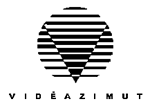Enhancing legal protection for free expression throughout the Commonwealth is the aim of a major project launched by the Commonwealth Association for Education in Journalism and Communication (C.A.E.J.C.). The Commonwealth Media Laws Project stems from the belief that the development of independent mass media is crucial to advancing the process of democratisation now underway in many Commonwealth countries. This project will contribute to that process.
The first part will consist of a series of essays written by the members of the project’s Editorial Committee. These essays will provide a variety of perspectives on the meaning and significance of freedom of expression. The Editorial Committee, which will also generally supervise the project, is a distinguished group of Commonwealth men and women. It includes Professor Shirani Bandaranayake, Dean of the Faculty of Law, University of Colombo, Sri Lanka; Derek Ingram, Editor, Gemini News Service, London, U.K.; Mr. Justice Michael Kirby of the High Court of Australia; Professor Rex Nettleford, Pro Vice-Chancellor, The University of the West Indies, Jamaica; and George Verghese of Centre for Policy Research, New Delhi, India.
The second part of the project will consist of detailed studies of existing media laws of fourteen Commonwealth countries. The countries to be studied represent the diversity which is characteristic of the Commonwealth. They are: Cameroon, Canada, Ghana, India, Jamaica, Kenya, Malaysia, Mauritius, New Zealand, Papua New Guinea, South Africa, Sri Lanka, the United Kingdom and Zimbabwe. The country reports will look at issues such as state security and the mass media, reporting on courts and trials, the structure of ownership of the mass media, the law of defamation and questions of the public responsibilities and public accountability of the mass media.
The third part of the project will be its centrepiece. After reviewing all the country reports, the Editorial Committee will draft a model code of media law. It will be presented in such a way that it could be directly adopted as legislation, in whole or in part, by Commonwealth states.
The first meeting of the Editorial Committee will be held in Kuala
Lumpur, Malaysia between May 16th and 18th 1996. The final meeting, for the preparation of the model code of media law, will take place at the Commonwealth Secretariat in London, U.K. in about the middle of 1997.
Key words
communication, law, legislation, media, democratization process, freedom of speech, freedom of information
,
Notes
Translated into French.
The CAEJCis an organisation of 700 teachers of journalism and mass communication in 35 Commonwealth countries. Founded in 1985, its overall goal is to contribute to the enhancement of journalism training in all parts of the Commonwealth. The project is being funded by the Canadian International Development Agencyand the Commonwealth Foundation.
Robert Martin is the Director of the project, a Professor of Law at the University of Western Ontario, London, Canada and Secretary-Treasurer of the C.A.E.J.C. For further information write him at: Faculty of Law, University of Western Ontario, London, Ontario N6A 3K7 Canada. Tel (1 519)661 3348. Fax (1 519)661 3790. Email: caejc@julian.uwo.ca
Source
Articles and files
Videazimut, Designing a Legal Framework in. Clips, 1996 (Canada), 10

Videazimut - 3680, rue Jeanne-Mance, bur.430 Montreal (Quebec) CANADA H2X 2K5 - Tél. (1 514)982 6660 - Fax (1 514)982 6122 - Canada - videaz (@) web.net



